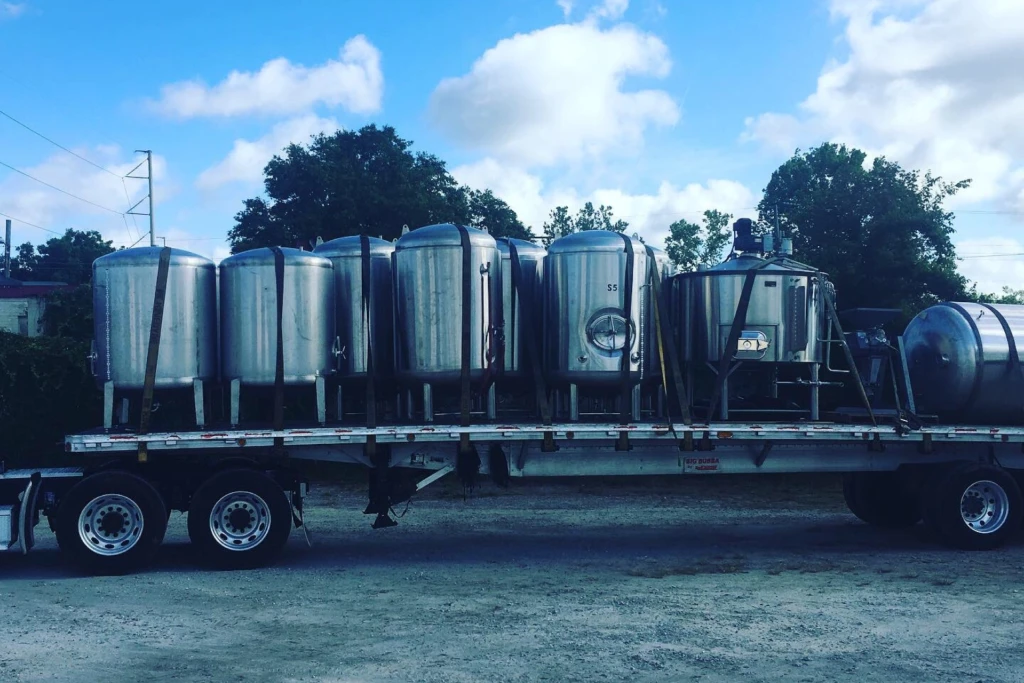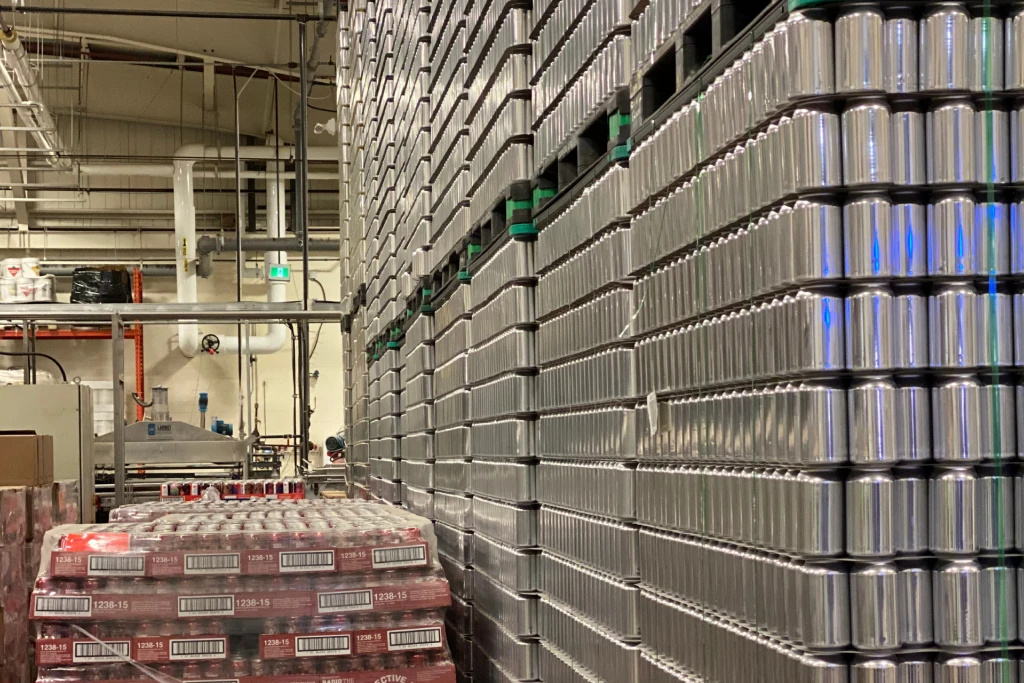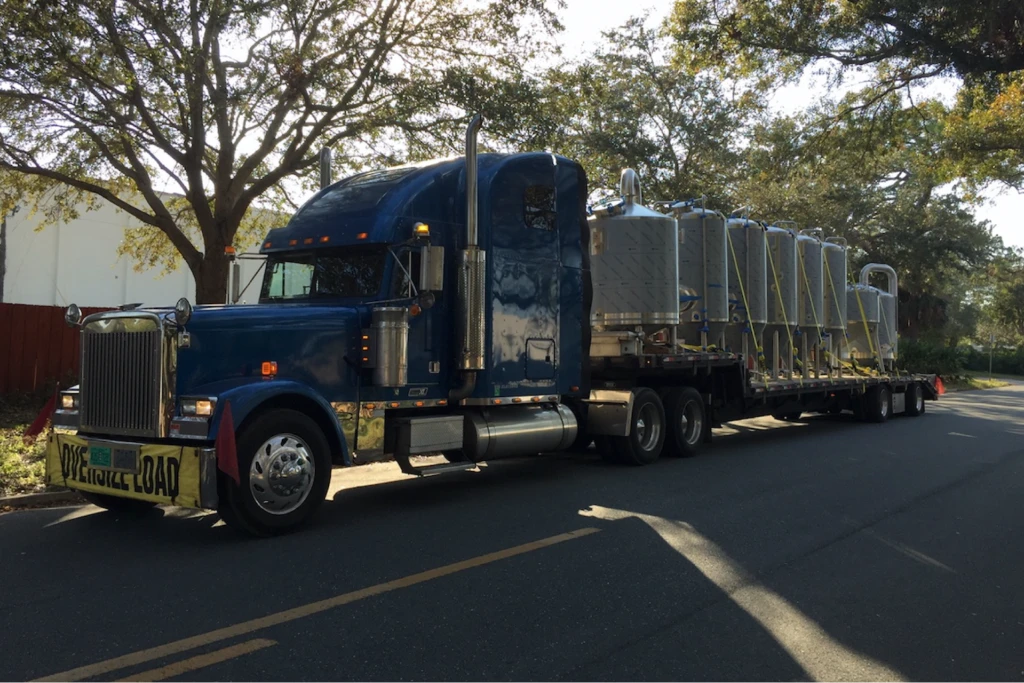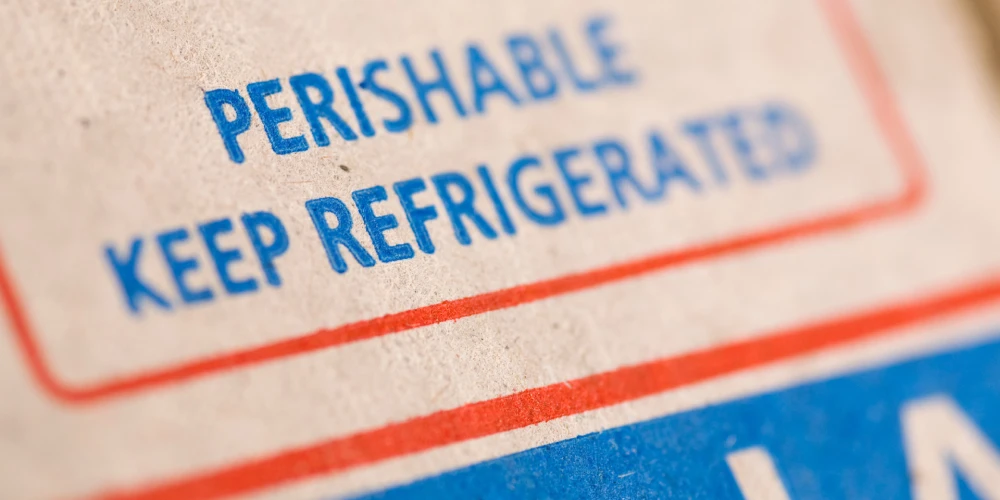Table of Contents
- What is Supply Chain Operations?
- What is Logistics Management?
- Supply Chain and Logistics: Key Differences
- Why Chain Management and Logistics Matter in the Beverage Industry
- How Logistics Specialists Optimize Supply Chain Processes
- Logistics vs Supply Chain FAQs
- Attain the Next Level of Inventory Management

Supply Chain vs. Logistics: What’s the Difference?
Published Date: 10 September 2025
A supply chain encompasses the entire process of manufacturing and transporting goods, from strategy and planning to creation and delivery. Logistics is a part of supply chain operations which focuses on the movement and storage of goods throughout the overall supply chain.
Logistics and supply chain management may sound similar, but they differ in scale and operations. At its core, the supply chain covers the entire process of creating a product and getting it to market, from planning and sourcing to manufacturing and delivery.
Logistics, on the other hand, is one part of that process. It focuses on the movement, storage, and coordination of goods to ensure products flow efficiently from one stage of the supply chain to another.
In the beverage industry, supply chain management drives overall strategy, while logistics ensures that perishable goods are transported quickly, safely, and in compliance with strict regulations and rapidly changing consumer demands. That’s why partnering with an effective logistics and supply chain management specialist simplifies the entire process.
To better understand the difference between logistics and supply chain, explore their definitions, key differences, and real-world examples in this blog, so your business can achieve efficient, reliable product transportation.
What is Supply Chain Operations?
A supply chain is the path goods take from creation to the consumer. It’s a comprehensive, end-to-end network that encompasses sourcing, production, storage, warehousing, distribution, and sales, the big-picture flow that keeps products moving.
In simplest terms, the supply chain is an umbrella that encompasses the entire process of moving goods, both raw and processed, from the point of production to the consumer.
What is the Supply Chain Process?
In the beverage industry, the supply chain touches every stage of a product’s life cycle. For example:
- Sourcing: Hops for beer, cocoa for chocolate drinks, or fruit for juice are harvested at the start of the chain.
- Production: Ingredients are crushed, fermented, bottled, or processed into the finished product.
- Packaging & Labeling: Bottles or containers are sealed and branded for retail.
- Distribution: Products move to wholesalers, retailers, or directly to customers.
The supply chain is crucial for ensuring a steady flow of raw materials, maintaining regulatory compliance, and providing consistent product availability. With hundreds of moving parts, effective supply chain management is crucial for efficient and reliable delivery.

What is Logistics Management?
Logistics management focuses on how goods move from one stage to another, and how they’re stored for successful transportation. As a subset of the supply chain, logistics covers day-to-day execution, ensuring movement, storage, and delivery happen smoothly.
In the beverage industry, effective logistics business operations ensure:
- Freshness, quickness, and safety
- Compliance with beverage transportation regulations
- Proper packaging, labeling, and handling for every shipment.
| What are Examples of Logistics Tasks in the Beverage Industry? |
|
How is Logistics for Beverages Carried Out?
Logistics depends on the type of beverage being transported and stored, and informs the method of packaging and transportation. For example:
- Cold beverages require refrigerated trucks or insulated packaging solutions like a Pallet Parka.
- Shelf-stable drinks may move through standard freight or palletized shipping
Supply chain management works best when supported by experienced logistics specialists. They oversee the entire process of keeping your product safe and fresh while moving it where you need it with top-grade efficiency.
What are The Two Types of Logistics?
There are two primary types of logistics, both involve transporting and delivering goods, but differ in the type of product and the recipient:
| Inbound Logistics | Outbound Logistics |
|
|

Supply Chain and Logistics: Key Differences
| Supply Chain | Logistics |
|
|
|
|
|
|
Why Chain Management and Logistics Matter in the Beverage Industry
In the beverage industry, effective supply chain management and logistics are crucial in ensuring products reach customers on time and in top condition. As fast-moving consumer goods, beverages rely on careful coordination and synchronization. Every step, from production and packaging to transport and delivery, must occur quickly and precisely to preserve freshness and quality.
- Meet constant demand: Through supply chain management and logistics, ready-to-drink beverages can be produced quickly and delivered on time.
- Protect product integrity: Supply chain managers ensure that perishable goods (such as beer, dairy, and juices) are properly stored, transported, and distributed to preserve freshness and quality.
- Avoid costly inefficiencies: Late or damaged shipments can impact consumer trust and incur additional expenses due to shipping errors or losses. Efficient logistics prevent risks with strategic planning and multiple contingency plans.
- Gain a competitive advantage: Advanced logistics solutions ensure that high-quality products reach customers promptly and reliably, giving you an edge against competitors who rely on traditional methods.
- Support sustainability goals: Logistics specialists optimize routes, maximize truck space, and streamline packaging and storage to lower costs and reduce carbon footprints.
How Logistics Specialists Optimize Supply Chain Processes
Logistics specialists in the beverage industry solve common pain points across the entire supply chain. By applying advanced tools, planning, and expertise, they ensure products reach their destination in perfect condition at the right time, from sourcing to delivery.
- Raw Material Shortages: When droughts or supply disruptions affect ingredients like grapes or coffee beans, logistics specialists use demand planning and forecasting to reduce risks and keep production on track.
- Limited Supplier Visibility: Supply chain management professionals identify local and alternative suppliers, ensuring manufacturers have reliable access to raw materials while cutting lead times and costs.
- Compliance Headaches: Logistics partners ensure proper labeling, packaging, and documentation to prevent goods from being delayed or rejected during shipment.
- Cold Chain Management: Temperature-controlled logistics protect perishable goods, ensuring ingredients stay fresh and beverages remain safe until they reach consumers. At Brew Movers, we use advanced Pallet Parka shipping methods for ultimate temperature control.
- Food Warehousing Solutions: Advanced inventory management and climate control systems make sure your goods are stored in optimal conditions until final delivery.
- Transportation Management: Efficient route planning and last-mile delivery strategies from logistics experts minimize freight costs, reduce carbon emissions, and ensure your shipments reach their destination safely and on time.

Logistics vs Supply Chain FAQs
Is Supply Chain and Logistics the Same?
Not quite. While logistics is a part of the supply chain, it focuses on different parts. The supply chain is the big picture, encompassing everything that involves taking a raw ingredient or resource to the finished product. Logistics is the strategy that goes into storing, transporting, and delivering a product through the various stages of its life cycle.
What’s an Example of the Difference Between Supply Chain and Logistics?
Consider your favourite ready-to-drink coffee. First, coffee beans must be sourced from a farm, roasted at a plant, and then brewed to make coffee. Then the coffee must be packaged and labelled, and sent to its destination.
That’s the supply chain, how an ingredient is made into goods and distributed. Logistics refers to the storage and transportation of ingredients and the finished product between each stage of their life cycle.
What are the Biggest Pain Points in Beverage Supply Chains and Logistics?
The biggest pain points experienced in the supply chain and logistics include ingredient shortages, spoilage, delays, unexpected costs, inconsistent temperature control, supplier reliability issues, regulatory compliance challenges, global disruptions, and sustainability concerns.
Attain the Next Level of Inventory Management
At Brew Movers, we specialize in logistics solutions that keep your supply chain running smoothly. We go beyond differentiating supply chain vs logistics. Our white-glove managed logistics handle every step, from inbound ingredients to outbound finished goods.
With years of industry experience, we understand the rules and regulations required to move your products seamlessly across states and provinces. Let us handle it from here.
Get a quote today, and let’s optimize logistics within your supply chain.
Adrian Gram
CEO & Co-FounderA strong skill set to perform analytical assessments, translate them into strategic plans and then build a comprehensive Go-To-Market roadmap that drives execution and delivers results. Versed in empowering and influencing key stakeholders from executive level leadership to field teams, building wide spread adoption that is focused on a common goal, The Customer, Growth and Profits.




